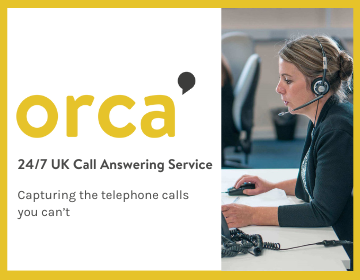The Money Laundering Regulations have been in place for four years now. But research indicates that only a very small minority of estate agents and surveyors have taken the issue seriously enough to have properly investigated what is necessary to avoid a financial penalty – or worse the loss of the business, and in extreme circumstances even a term sewing mailbags at Her Majesty’s pleasure.
An EU directive requires all member states to implement controls to prevent money laundering and terrorist financing. This was implemented in the UK with the Money Laundering Regulations 2007 (MLR). It is important to understand that in the UK, the regulations have been extended to include the Proceeds of Crime Act and the Fraud Act.
In summary, therefore, all agents and surveyors must comply with the legislation and report any client of whom the firm has a suspicion that an offence may have been committed (or attempted).
Since the introduction of MLR 2007, sight of a copy of a passport or driving licence plus a utility bill is not sufficient to discharge the firm’s responsibility for completing a due diligence process. It follows that everyone who may meet a client must be aware of the MLR and this adds a further requirement for the firm to provide training.
REGISTRATION
The Office of Fair Trading (the organisation appointed by HM Treasury to supervise agents and surveyors) has adopted a ‘softly, softly’ approach to firms, some of which have not even registered for supervision under MLR, and has issued warnings to non-registered firms before imposing a penalty for non-compliance.
That is set to change in 2012. The honeymoon period and ‘light touch’ will be replaced by a more risk-based approach to compliance. This follows checks made last year when OFT contacted 212 firms, every one of which was warned to register immediately. One firm that did not heed the warning ended up with the minimum penalty of £2,000 (it subsequently registered!).
Another alarming statistic is given on the OFT website – in excess of 95% of firms visited required ‘extensive advice on how to comply’.
Mario Tsavellas, OFT Director of Anti-Money Laundering, has said: “The OFT is committed to supporting businesses through education, advice and guidance. However, where necessary, we will use our powers to impose penalties or prosecute non-compliant businesses.”
As suggested above, all agents and surveyors are required to report any suspicious activity to the appropriate authority: in the case of MLR, this is the Serious Organised Crime Agency.
This collates all reports of criminal activity, and prosecutions of serial offenders have resulted.
In reality, any attempt at fraudulent activity on the part of a client must be reported – so a vendor who asks for a discount ‘for cash’ (for example, against the firm’s fee) must be reported.
Failure to do so can result in the firm itself or its employees being prosecuted under criminal legislation that can result in a custodial sentence up to a maximum of 14 years.
Which leads on to another important recommendation – that every firm should pre-register with SOCA. See the link at the end.
This article is not intended to frighten firms but to help agents with their responsibilities for compliance with MLR.
A manual, including a policy statement, a full due diligence procedure and training are three essential requirements necessary for compliance. These are available from a number of specialist support companies and some provide a complete package from around £200 annually.
Further articles will appear over the coming weeks to help readers avoid expensive investigations and penalties, so watch this space for friendly and informed advice.
If you haven’t already done so, you should register now with OFT which you can do easily online at https://www.oft.gov.uk/mlr
It is also recommended that you pre-register with SOCA (https://www.soca.gov.uk)
Considerable guidance is provided on the internet – see https://www.oft.gov.uk/mlr and https://www.amlcc.co.uk









.png)



%20A%20property%20tale%20for%20our%20times.png)







Comments
In all of this, only ONE mention of the key word missing throughout - not only the story - but even absent in the name of the legislation itself.
Anyone care to hazard a guess what it is...?
Having led a project to gain FSA authorisation as the new money laundering rules were being introduced, I would give a general warning that using standard off the peg forms and solutions is ok provided that the material is looked at, understood, audited and generally followed.
The basis behind the regulations is a 'risk based' approach. This basically means you have to be proactive in identifying risks and acting upon what you find.
The whole point of the new regulations was to avoid fixed rules that people can demonstrate they follow on paper, but not in practice.